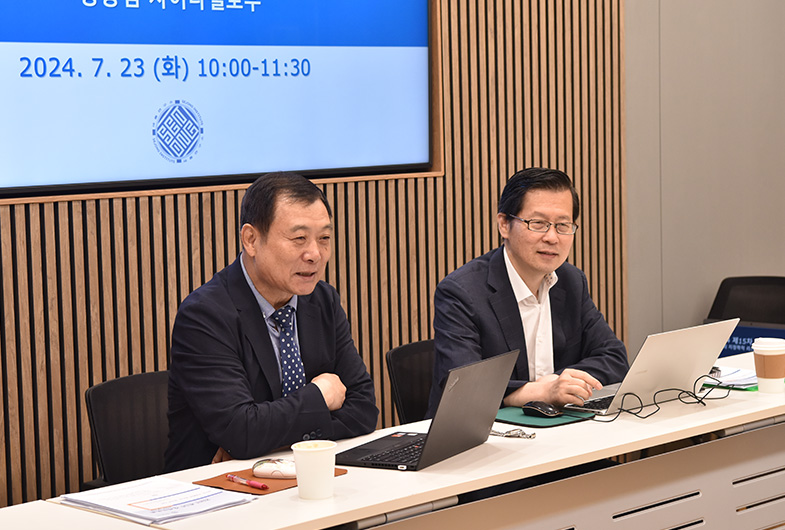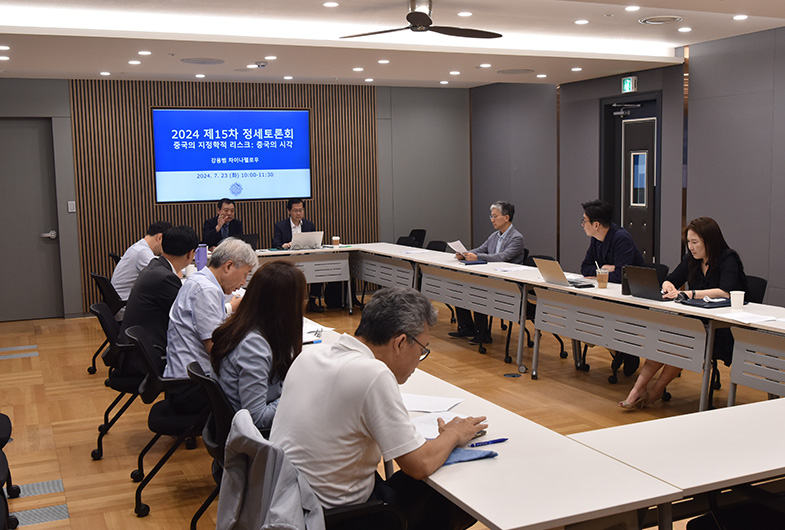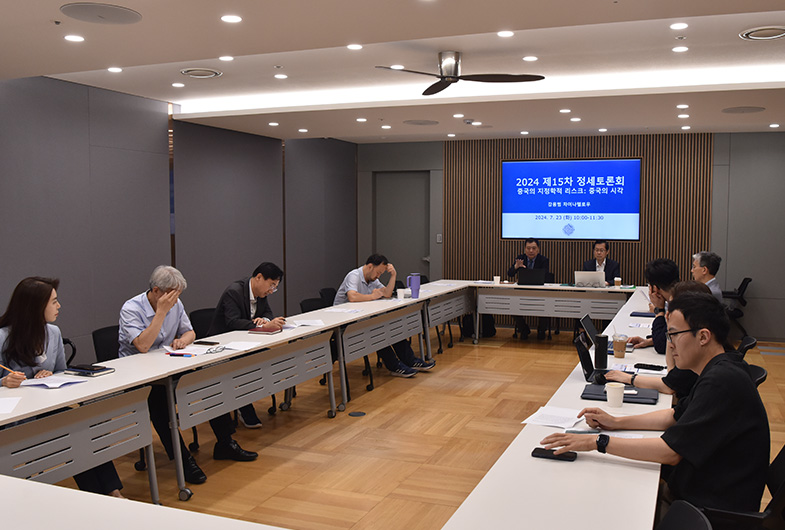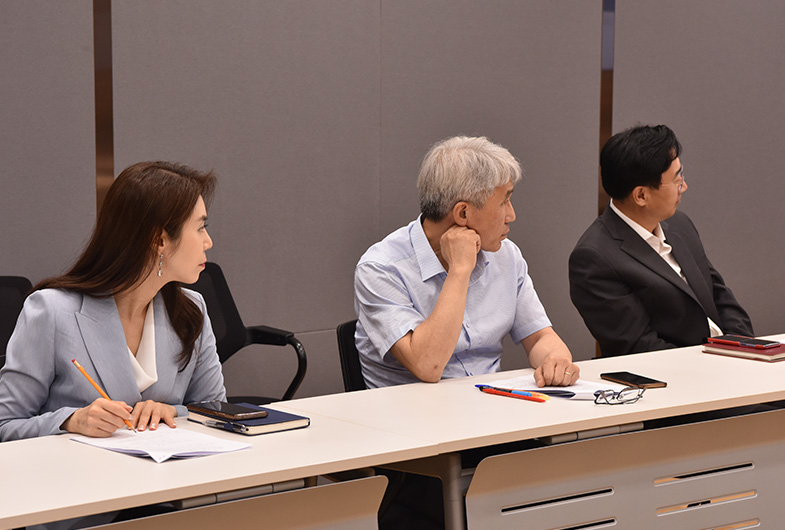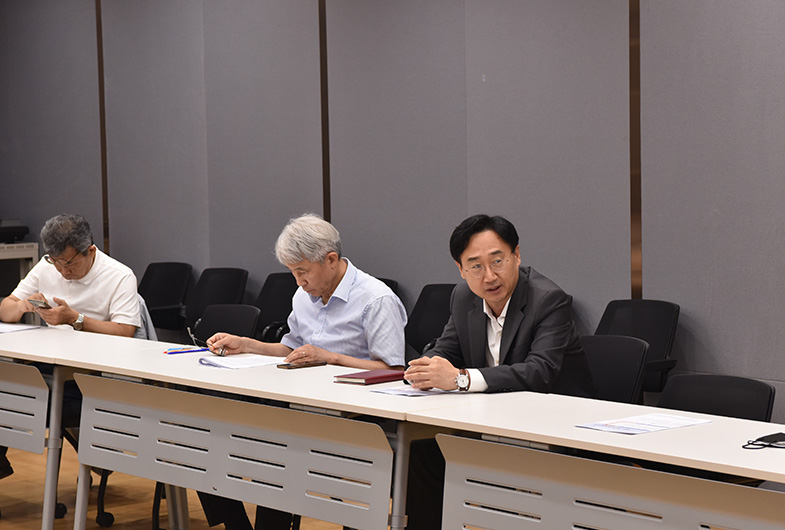Tuesday, July 23, Yongbeom Kang, China Fellow, gave a presentation under the theme of “China's Geopolitical Risks: A Chinese Perspective” at the 15th Sejong Institute Colloquium.
The discussion was moderated by Seong Chang Cheong, Director of the Center for Korean Peninsula Strategy.
Today, as the international situation has become precarious and the U.S.-China strategic competition has become a complex, three-dimensional, and all-round confrontation, there is a dominant view that the United States and China have already entered a new Cold War. The geopolitical risks facing China are increasing as South Korea, the United States, and Japan have established a trilateral cooperation system, and North Korea is closely aligned with Russia, creating a factional confrontation in Northeast Asia.
The Russia-Ukraine war has already turned into a protracted conflict, and the U.S. strategic goal of weakening Russia has been partially achieved. Later, the U.S. is looking to expand its encirclement of China, opening up a second hunting ground for China in Asia-Pacific. The Biden administration has characterized China as a “more dangerous competitor than Russia,” and as the war in Ukraine continues, the U.S. and NATO are keenly aware of the “Chinese variable".
Biden administration is pursuing a more sophisticated and hostile anti-China policy based on democracy and a value-based Alliance, so China's urgent need is not to “Improve Sino-US Relations” but to “Manage the Sino-US Strategic Confrontation.” On April 2nd, President Xi Jinping and President Biden exchanged views on sensitive security issues, including the Korean Peninsula and Taiwan.
